Chapter
2: "Power Up"
Some details,
ideas, and musings I've had
experiencing effective RPGs and RPG
Makers
©
March Written by David Wicker
Please do
not reprint without permission
Last
week we covered the origin of computer RPGs
and a simple way of creating arrays and
tables in programming to determine the
maximum number of hit points for a player
based on their level.
Today we are going to go
more into detail about gaining levels, what
gains levels in players, and a very unique
idea by a particular PS1 game.
For now though, let's look
at conventional means of gaining a level.
First off, you need to
understand what this means.
It means that your player
(one or more) has gained experience points,
usually through battling and defeating
monsters. At first gaining levels is pretty
easy, but the higher the level of the player
is, the more difficult it is to "reach" that
next level.
Gaining levels can mean
many different things in different RPGs.
Some RPGs benefit the
player by not only increasing their stats
such as strength, agility, magical ability,
defense, etc. but also with items, usually
not very valuable ones to start, and later
in the epoch of the game, priceless and
invaluable for the player.
Some RPGs also upon the
player gaining a level, return that
particular player their maximum hit point
level and maximum magic level. Dragon
Warrior for the NES does this. This is an
especially good thing for beginning players
as you don't have to have any healing
potions or herbs nor do you need a CURE
spell to recover your hits.
Merely get into combat
either on the outside map or in a dungeon
and each time you gain a level, you can exit
the area, save your game, and re-enter -
until it's clear you need some additional
help as you need quite a bit more experience
points to gain than your hit points will
suffer.
Some RPGs when you gain a
level automatically give you a magical spell
that will help you. Usually the first spell
you learn will be a HEALING spell that you
can cast and recover your player's hit
points.
Sometime later it could be
a spell to hinder your enemies, either
through direct damage, putting them to
sleep, confusing them, and in very high
levels, the ability to summon other monsters
to attack them in your stead. Dragon Warrior
for the NES also does this.
Gaining a level is a
welcome relief to players, to let them know
they have accomplished the "next level" of
their player and if they are an
exceptionally high level, this is a good
time to take a break and save the game,
either from an INN, being on the OUTSIDE
map, or even using a Save Spot.
As a programmer, whether or
not you are writing a completely custom RPG
or a more complex RPG Maker, you need to
decide what is the best way for the player
to be able to save their game.
[1] Save anywhere on any
map, just not in direct combat (Final
Fantasy Mystic Quest)
[2] Save option becomes
available when the player is on the tile
SAVE SPOT, (FF3 and S2)
[3] Save only or in
addition to being outside (most RPGs)
[4] Save only or in
addition to being in an INN or CHURCH
(Beyond The Beyond)
Experience points, if they
are well done promise rapid level growth for
the beginning player and in higher levels,
the player must face greater challenges like
fighting and defeating harder and more
difficult monsters.
A badly designed RPG would
force a player to "grind." That is, to
re-enter low level areas and defeat them
over and over and over again merely to gain
the next level. Now grinding is not all bad,
but it is tedious and is a cheating way of
extending the gameplay of a particular RPG.
In fact if you've played
any number of RPGs, you may be more familiar
with the combat than the actual game itself,
and this is not too surprising as "Random
encounters" occur quite often, some games
being vicious enough to do it when the
player only walks a few steps from where
they were.
Legend Of Dragoon is a good
example of bad random encounters and badly
designed combat animation. The player need
only walk a few steps in a hostile map and
enter combat. To make it worse, the
animation to enter the combat is a good
5-seconds of fizzling the screen + another
5-seconds to show the critters up close in
the field before the player can EVEN make a
move !
A good method to "Random
Encounters" is to at least let the player
walk 10-steps or so and then maybe
initialize a random attack by monsters say
1-10 steps after that. Don't make the
animation to enter combat very long. In S2,
for instance, it's about 1-2 seconds.
You could also use a timer.
Maybe no more than 1 random encounter per
minute of actual mapping and exploring a
dungeon, and no more than 1-second to flash
the map with animation to show the player
has entered combat.
. . .
Okay, we've covered ways a
player can gain a level, let's look now at
what the player GETS in gaining a level.
While we already know that
the player's strength, defense, dexterity,
and other attributes can increase in gaining
a level, it is also not uncommon for the
"monster" to drop a treasure. Could be a
single healing potion, could be something
greater, depending upon what level the
monster is.
Now I promised to show you
one particular PS1 RPG that handles
experience points very differently than any
other, and the name of that game is called,
"Saga Frontier" (the first game as there are
two).
Saga Frontier has indeed
taken its own path of "experience" and for
two very important items of interest.
[1] Every time you are
victorious in a monster encounter, you
automatically RIGHT THEN get some gain for
that player. Added strength, dexterity,
luck, magical ability, etc. Could be small,
could be big, depends upon the difficulty of
defeating that level creature.
There are =NO= experience
points at all in Saga Frontier. Surviving
and completing the combat gets you your
bonuses right there.
[2] All players hit points
are reset to maximum outside of battle. This
is an interesting method in that it
encourages the player to PUSH themselves
right to the very edge in each combat. As
long as your player survives, you get the
goods and have the advantage of all your hit
points returned to each player directly
after combat.
No need to quaff 10+
healing potions or cast multiple healing
spells or what have you to get back to
normal maximum hits as most RPGs, including
Final Fantasy 7 would have you do. And
really, can one backpack carry 99 of
everything ? This will be covered in a later
chapter called, "The Burden Of
Responsibility."
. . .
I wanted to pause here for
a second to reflect on what is NOT a RPG
that you gain experience points in.
Legend Of Zelda being one.
You gain only a chance of a "heart" or an
item when you defeat a monster or attacker
in this action adventure game. The player
starts with a few hearts and loses
half-a-heart when hit by the attacker. The
player must use a potion or find a Fairy
Spring to recover back to maximum hearts.
So to make the player
stronger, they must search the outside map,
dungeons, castles, and what have you to FIND
an extra heart icon which increases the
maximum number you can have. This is the
ONLY way to strengthen your player.
So there really is no
grinding as mentioned at all. You could stay
in one part of the game and defeat literally
hundreds of attackers and at best you might
gain a single RUPEE (money) for defeating
that particular attacker, or gain even a
normal heart, which is worthless if you are
already at your maximum number.
. . .
Up to now
we've been referring to RPGs where there
can be one or more players. Next week
we'll cover "Who's On First" which goes in
detail about the differences in player
classes, their weapon types, their
abilities, and combat where there is more
than one player involved.
It will
also cover the order in which their
commands are received, the importance of
this in actual gameplay, the variations
available to this method of combat in
varying RPGs, and why it's useful to keep
track of and have multiple players when
progressing through an RPG.
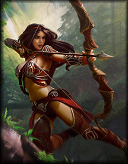
Return
back HOME



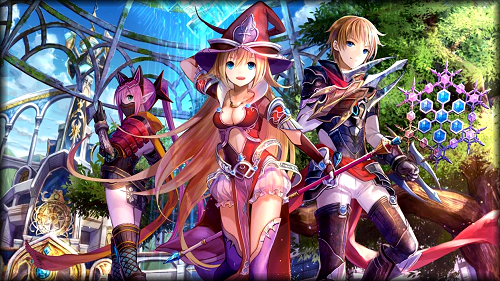
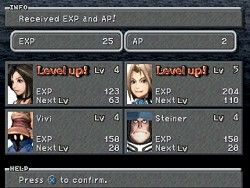
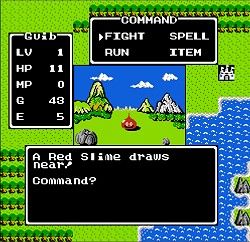
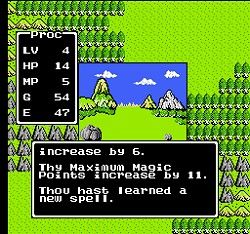
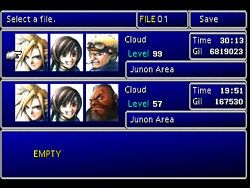
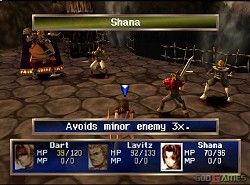
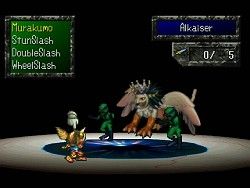
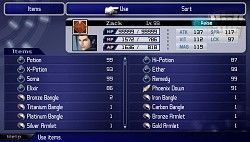
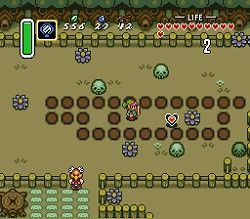
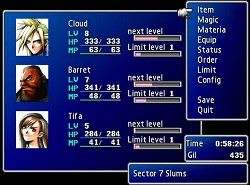


 Flag Writing
Flag Writing